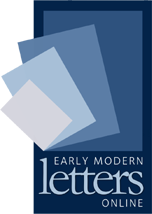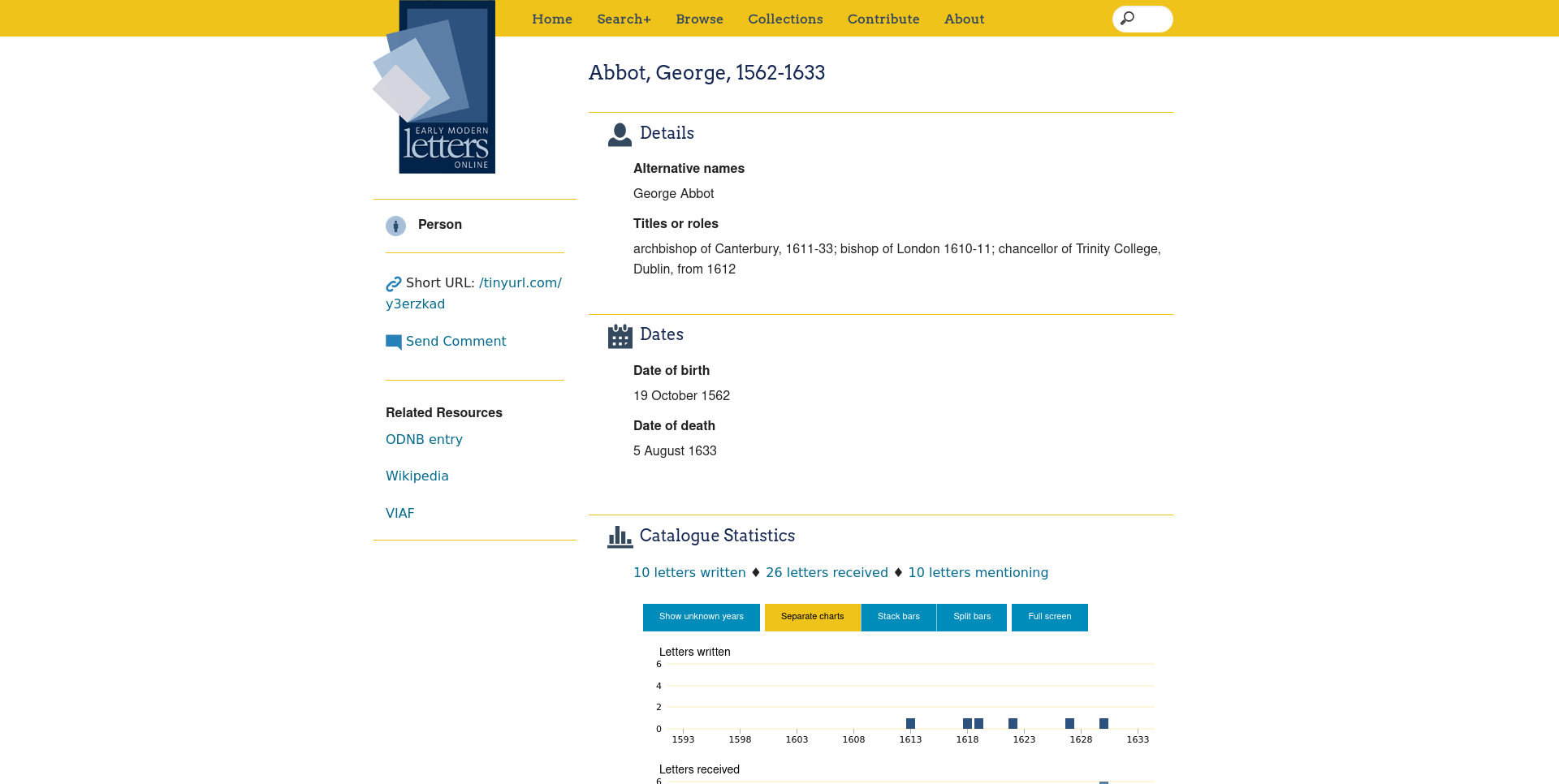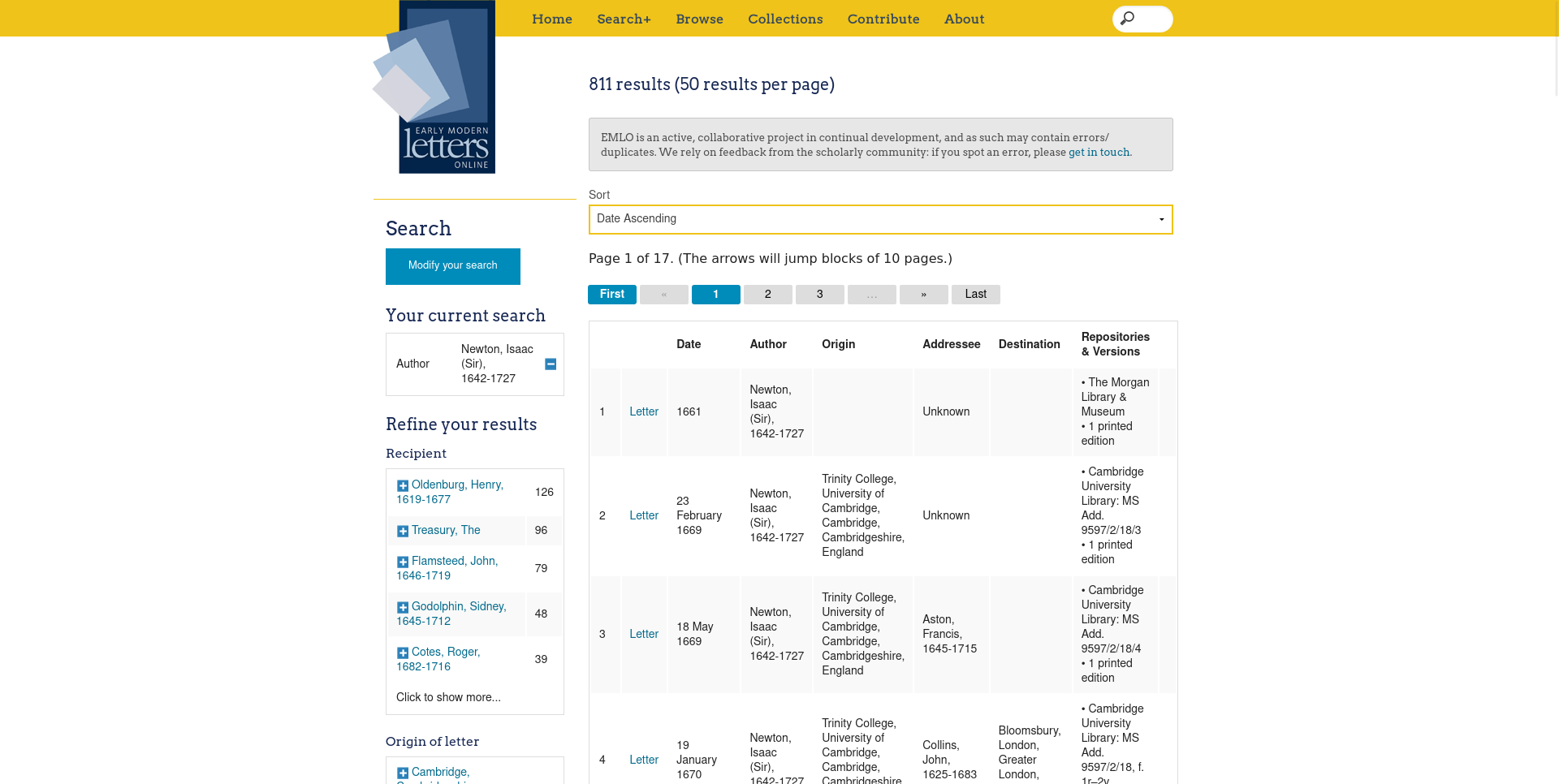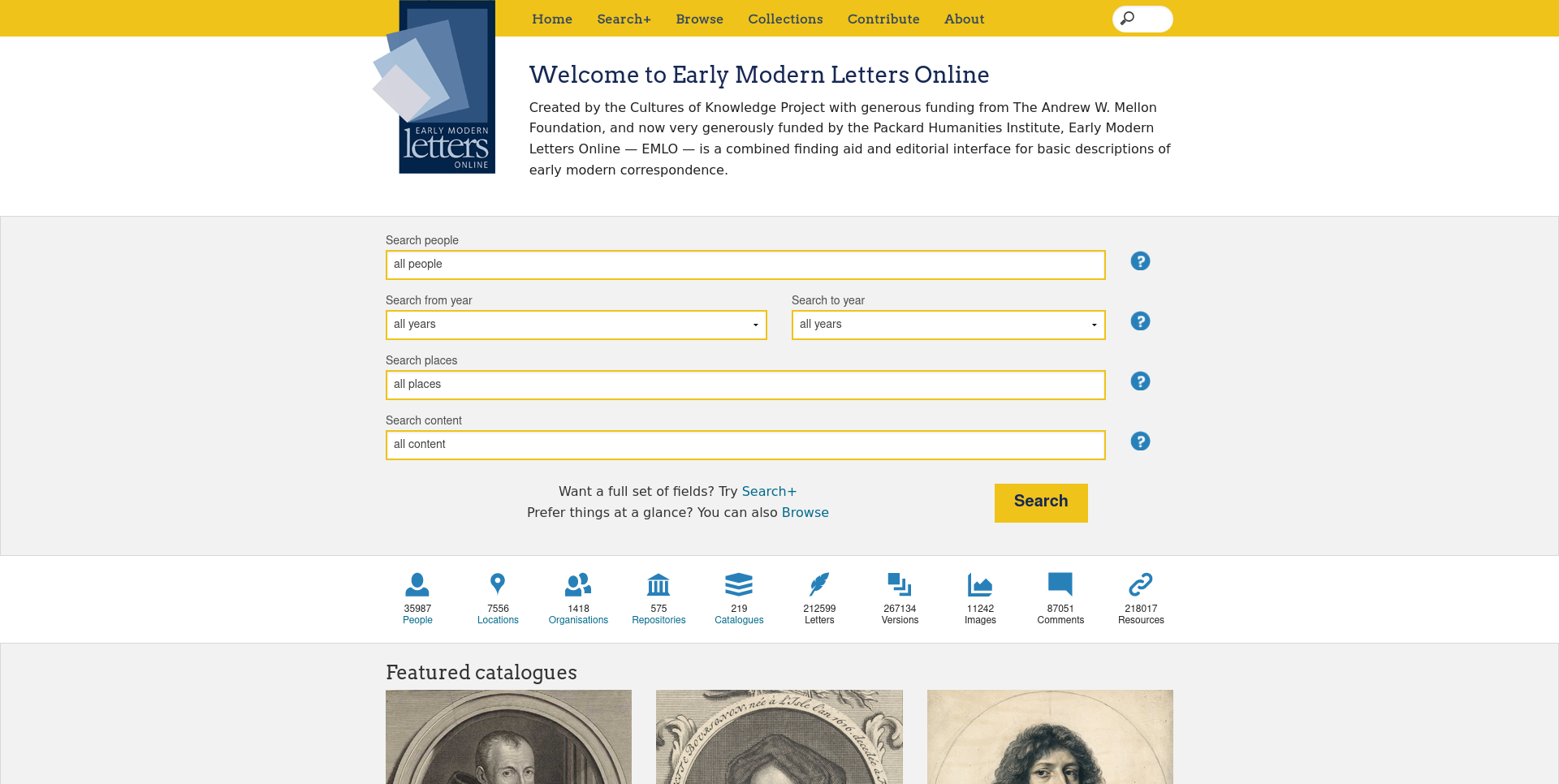Early Modern Letters Online (EMLO) is a growing union catalogue of correspondence from the sixteenth, seventeenth, and eighteenth centuries. EMLO forms part of a collaborative, interdisciplinary research project based at the University of Oxford known as Cultures of Knowledge.
Bringing together experts in history, philosophy, science, and literature with librarians, archivists, and systems developers, Cultures of Knowledge uses digital methods to reassemble and interpret the correspondence networks of the early modern period.
EMLO is a combined finding aid and editorial interface, building basic descriptions of early modern correspondence.



